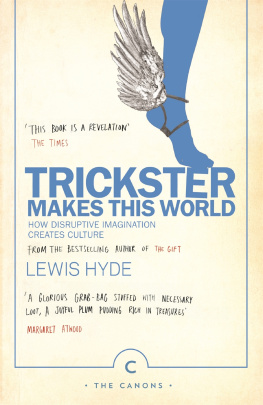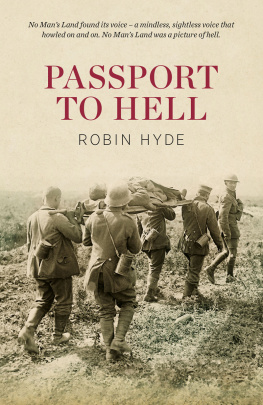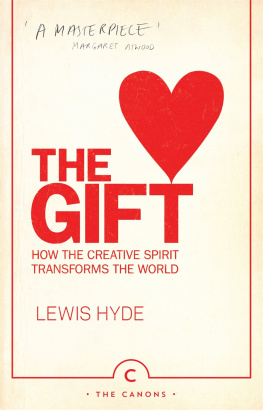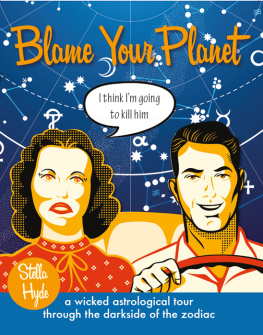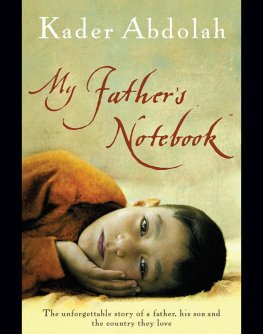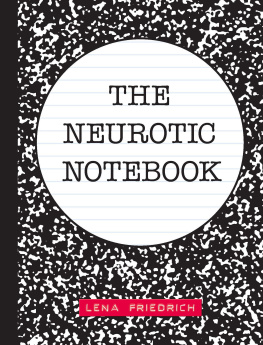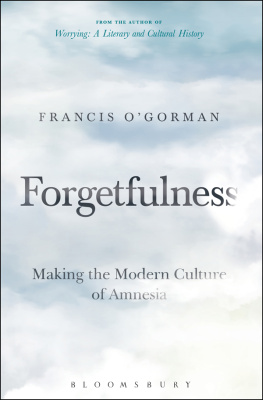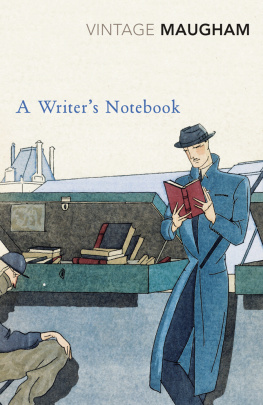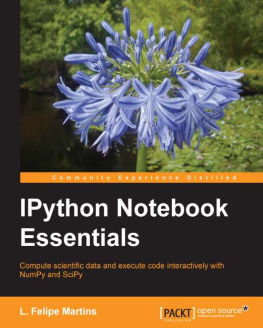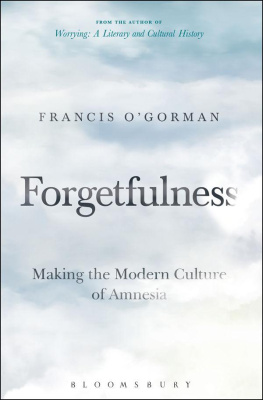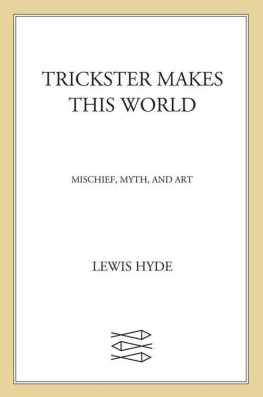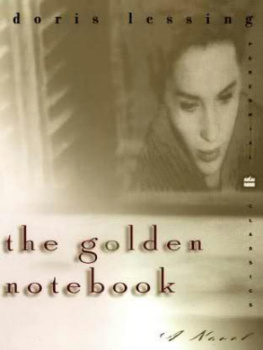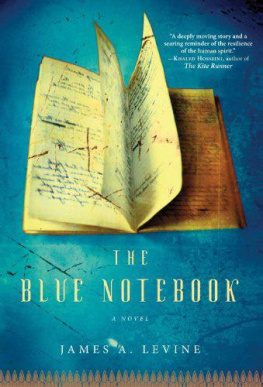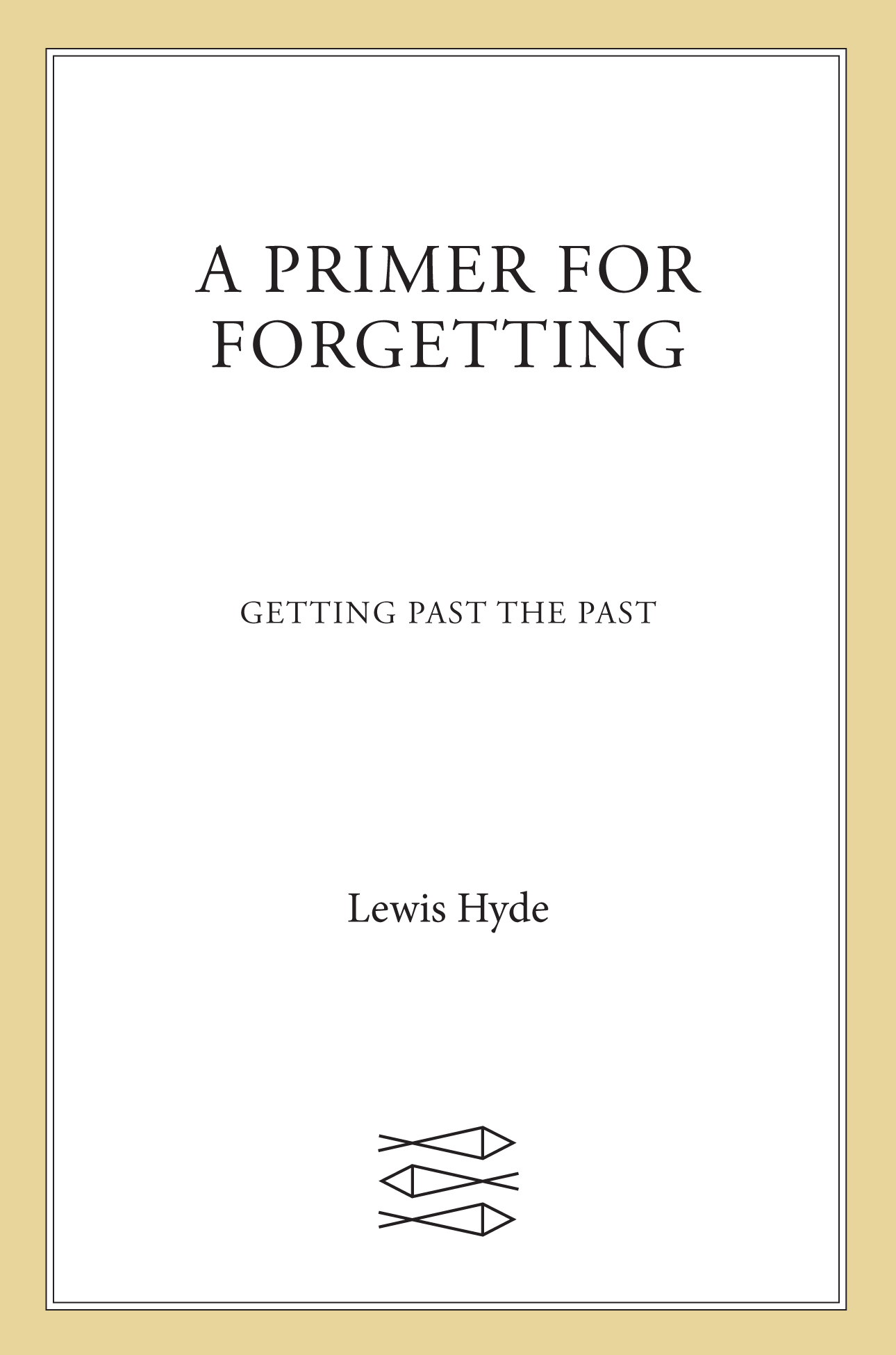The author and publisher have provided this e-book to you for your personal use only. You may not make this e-book publicly available in any way. Copyright infringement is against the law. If you believe the copy of this e-book you are reading infringes on the authors copyright, please notify the publisher at: us.macmillanusa.com/piracy.
M ANY YEARS AGO, reading about the old oral cultures where wisdom and history lived not in books but on the tongue, I found my curiosity aroused by one brief remark. Oral societies, I read, keep themselves in equilibrium by sloughing off memories which no longer have present relevance. My interest at the time was in memory itself, in the valuable ways that persons and cultures keep the past in mind, but here was a contrary note, one that clearly stirred my own contrary spirit, for I began to keep scrapbooks of other cases in which letting go of the past proves to be at least as useful as preserving it.
This book, the late fruit of those gleanings, has turned out to be an experiment in both thought and form. The thought experiment seeks to test the proposition that forgetfulness can be more useful than memory or, at the very least, that memory functions best in tandem with forgetting. To praise forgetting is not, of course, the same as speaking against memory; any experiment worth conducting ought sometimes to yield negative or null results, and mine is no exception. Readers will surely find instances, as I did, where theyll want to draw the line and say, No, here we must remember (though, ironically, stirring up resistance to forgetting can itself be one of the uses of forgetting).
As for the form, I decided to build on my scrapbooks rather than mine their content for a more conventional narrative. I have written three long booksThe Gift, Trickster Makes This World, and Common as Aireach of which spends over three hundred pages defending its central proposition. Having done that kind of work for years, I found myself weary of argument, tired of striving for mastery, of marshaling the evidence, of drilling down to bedrock to anchor every claim, of inventing transitions to mask the native jumpiness of my mind, of defending myself against imaginary swarms of critics. What a relief to make a book whose free associations are happily foregrounded, a book that does not so much argue its point of departure as more simply sketch the territory I have been exploring, a book that I hope will both invite and provoke a readers own free reflections.
The citations, aphorisms, anecdotes, stories, and reflections that are the stuff of my episodic form I have grouped around four focal points: mythology, personal psychology, politics, and the creative spirit. Most of the entries are briefjust a page or twobut once I got serious about making a book out of them, it became clear that several would need fuller elaboration. In Notebook I: Myth, for example, theres an extended portrait of what happened in Athens around 400 B.C.E., when a legal form of forgettingwhat we now call amnestyhelped secure the peace after a brutal civil war. Toward the end of Notebook II: Self, I recount the story of a racially motivated double murder committed in Mississippi in 1964, one that left the victims kin struggling to lay traumatic memory to rest.
Several of the political cases presented in Notebook III: Nation also called for longer treatment, from the struggle over how Americans both remember and forget their Civil War to the truth and reconciliation work that followed South Africas many decades of apartheid. Notebook IV: Creation mixes episodes from spiritual life and from artistic practice, the longer of these reflecting on the uses of forgetfulness in Saint Augustine, in Zen master Dogen, and in Marcel Proust (in whose work the famous moments of involuntary memory carry their redemptive force only because they have been at first forgotten).
I have also mixed a number of images into the books otherwise prose collage. Having always been a bit jealous of artists and art historians who get to darken the lecture hall and adorn their ideas with a magic lantern show, I was led to invent my own imaginary Museum of Forgetting and to stock it with works of art, each accompanied by explanatory wall text.
Readers often ask what drew the writer to the work at hand, seeming to expect it to have arisen from some difficult personal history. To be sure, one sorrow from my own lifemy mothers old-age dementiafigures in the book. So do some other marked eventsthe death of a sibling, my own connection to those Mississippi murders. But none of these gave rise to this book. Its true roots lie in the enigma of its topic.
Memory and forgetting: these are the faculties of mind by which we are aware of time, and time is a mystery. In addition, a long tradition holds that the imagination is best conceived as operating with a mixture of memory and forgetting. Creationthings coming into being that never were beforethat too is a mystery. Writers like me who work very slowly are well advised to settle on topics such as these, topics whose fascination may never be exhausted. Such authors do not simply tell us what they know; they invite us to join them in fronting the necessary limits of our knowing.
The Liquefaction of Time
THE APHORISMS
Every act of memory is an act of forgetting.
The tree of memory set its roots in blood.
To secure an ideal, surround it with a moat of forgetfulness.
To study the self is to forget the self.
In forgetting lies the liquefaction of time.
The Furies bloat the present with the undigested past.
Memory and oblivion, we call that imagination.
We dream in order to forget.
TO THE READER. Whoever wants really to get to know a new idea does well to take it up with all possible love, to avert the eye quickly from, even to forget, everything about it that is objectionable or false. We should give the author of a book the greatest possible head start and, as if at a race, virtually yearn with a pounding heart for him to reach his goal. By doing this, we penetrate into the heart of the new idea, into its motive center: and this is what it means to get to know it. Later, reason may set its limits, but at the start that overestimation, that occasional unhinging of the critical pendulum, is the device needed to entice the soul of the matter into the open, says Nietzsche.
MIRACULOUS. Replying to a question about the effort he put into composing with chance operations, John Cage said, Its an attempt to open our minds to possibilities other than the ones we remember, and the ones we already know we like. Something has to be done to get us free of our memories and choices.
Or he once said, This is why it is so difficult to listen to music we are familiar with; memory has acted to keep us aware of what will happen next, and so it is almost impossible to remain alive in the presence of a well-known masterpiece. Now and then it happens, and when it does, it partakes of the miraculous.
In a nod to his long interest in Buddhist teachings, Cage once released an audio disc titled The Ten Thousand Things, that phrase being the formula by which the old dharma texts refer to the whole of existence, to the fullness of what is, as in the teaching of the thirteenth-century Japanese Zen master Dogen: To study the Buddha Way is to study the self. To study the self is to forget the self. To forget the self is to become one with the ten thousand things.


